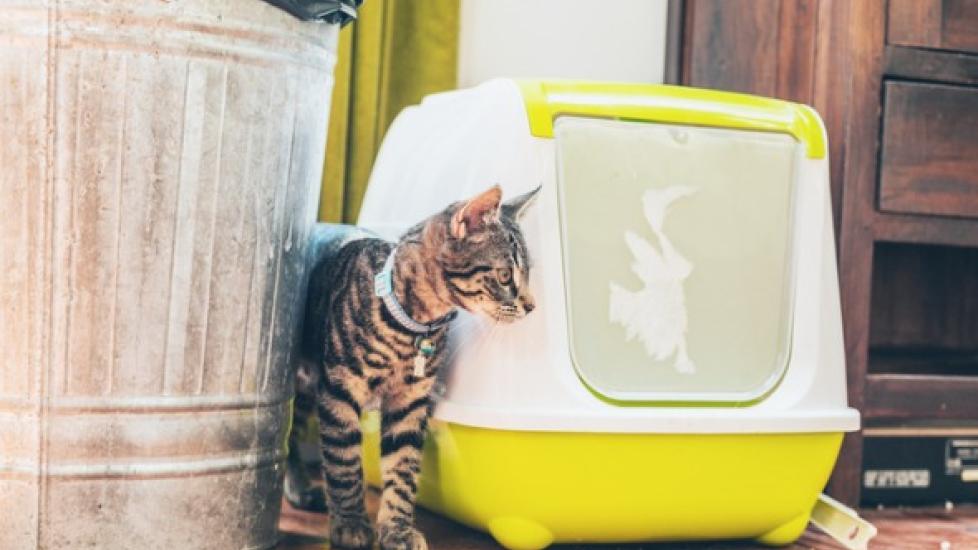What's the Best Litter for Declawed Cats?
Despite the issue of declawing cats being controversial in the veterinary and feline world, there is still a huge population of declawed cats out there—especially in shelters. And if you end up adopting one of these previously declawed cats as a new addition to your family, you will want to make special considerations to help make them comfortable.
“Feline toe amputation is a barbaric procedure with NO medical justification. It should NEVER be performed as it cuts nerves and forever damages the architecture of the cat’s feet—changing how the cat walks and setting the stage for a potentially permanent pain state,” says Dr. Robin Downing, VM, MS, DAAPM, DACVSMR, CVPP, CCRP. “Unfortunately, some cats in rescue have already had their feet mutilated in this way.”
Dr. Lynn Bahr, DVM, says, “Declawing is a permanent amputation of the toe bone and permanently mutilates cats for life. While most owners don't realize it, their cats are in pain even if they don't act like it.”
Because of the loss of a portion of their toe bone, cats can experience pain or difficulty when it comes to digging, which can make using their cat litter box very difficult. But you can help to make the litter box experience more comfortable for your newly adopted cat by choosing the right cat litter for declawed cats.
Why the Litter Box Can Be a Challenge for Declawed Cats
As Dr. Bahr and Dr. Downing explain, declawing causes permanent pain in a cat’s foot—and when they use the litter box, that pain can be exacerbated by the cat litter.
“All cats using litter boxes exit them with litter, small particles of litter, or litter dust between their toes,” says Dr. Bahr. “Declawed cats object to litter boxes because their feet hurt normally, and cleaning the dust from their toes makes it hurt even more.”
What To Look For in Cat Litter for Declawed Cats
Because digging through cat litter can be difficult and painful for declawed cats—and can prevent them from using their litter box properly—the kind of cat litter you buy for your kitty is extremely important.
“If owners think of litter as being similar to toilet paper, we all prefer the softest paper possible. No one wants to wipe ... with sandpaper,” says Dr. Bahr. The key is to find cat litter for declawed cats that’s going to be as gentle on their feet as possible.
“For the most part, pelleted litters should be avoided,” says Dr. Downing. “The missing toe bones of these cats means that their feet do not conform to surfaces like normal feet, and the uneven surfaces of the pellets may lead to litter box aversion, prompting the cat to engage in inappropriate elimination.”
Dr. Bahr recommends finding the softest cat litter available to help a declawed cat use a litter box comfortably. She explains, “Declawed cats ... toes hurt from being amputated and owners should avoid any litter that is coarse or feels like small pebbles or shards of glass.”
When it comes to cat litters that will be soft on your declawed kitty’s paws, there are a few varieties you can try. One option is a lightweight cat litter with extremely fine grains, like Garfield cat litter tiny grains flushable cat litter.
Another option is cat litter made with all-natural ingredients, like the ones listed below.
What To Do if Your Declawed Cat Won’t Use the Cat Litter Box
If you rescue or adopt a declawed cat and they’re having trouble using their litter box, here are a few steps you can take to get your cat more comfortable with the experience.
First, talk to your vet. “I would suggest owners have their cats seen by a veterinarian (preferably a Paw Project veterinarian) trained to detect post-declaw problems,” says Dr. Bahr. “They should evaluate whether there is regrowth of nails or damage that can be treated surgically or medically.”
“Should the cat seem to be hesitant to be in the litter pan, do not ignore it! Bring the behavior to your veterinarian’s attention,” says Dr. Downing.
After the evaluation, your vet may be able to prescribe pet pain medications to alleviate your cat’s discomfort—which will help them use their cat litter box without aggravating their paw injuries. “All declawed cats, and especially those that are not using their litter boxes, should be given pain medication,” says Dr. Bahr. “There are various cocktails that are good for declawed cats specifically.”
If your declawed cat still has problems using their litter box after treatment and after taking pain medication for cats, it might be time to start exploring alternate options. “Owners can try using absorbent pads instead of litter to see if their cat accepts that better,” says Dr. Bahr.
“I really believe that once the pain is removed, declawed cats will use their litter boxes more appropriately,” says Dr. Bahr.
By: Deanna deBara
Featured Image: iStock.com/ysbrandcosijn
Help us make PetMD better
Was this article helpful?
